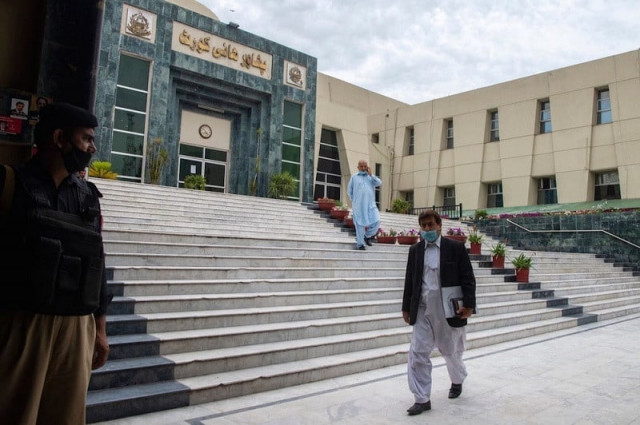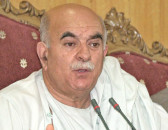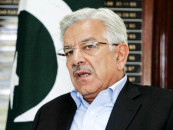PHC questions polls transparency amid crackdown
Reserves order on maintainability of PTI’s plea seeking judicial oversight of elections

The Peshawar High Court (PHC) has reserved its order on maintainability of a writ petition seeking judicial oversight of the February 8 general elections. The court has, however, raised questions over transparency of elections being held amid a crackdown against “a political party”.
A division bench of the high court, comprising PHC Chief Justice Mohammad Ibrahim Khan and Justice Shakeel Ahmed, on Monday took up the petition filed by Moazzam Butt, a lawyer associated with the PTI, against appointment of election supervisors from civil bureaucracy.
The Election Commission of Pakistan (ECP) on December 12 announced appointing District Returning Officers (DROs), Returning Officers (ROs) and Assistant Returning Officers (AROs) from bureaucracy.
The PTI challenged this move in provincial high courts including the Lahore High Court (LHC) and the PHC. A single-member bench of the LHC on December 14 suspended the ECP notifications.
However, a three-member bench of the Supreme Court on December 15 suspended the LHC order, noting that the LHC “with a stroke of pen” stopped a total of 2,753 DROs, ROs and AROs from performing their duties “thereby derailing the process of elections”.
Issuing a contempt notice to the PTI’s lawyer who had filed petition in the LHC, the SC noted that while ordering the ECP to announce the election date in consultation with the president, the apex court had stipulated that, “no one should be allowed to put forward any pretext to derail democracy”.
Read also: PHC to take up plea for polls under judiciary’s supervision
During the hearing of the case on Monday, Justice Shakeel Ahmed asked if the PHC could proceed with the hearing in this case after the recent Supreme Court decision.
“What will be the future of this case if we continue hearing it? The Supreme Court has clarified many important points in its decision on December 15,” he said.
Justice Mohammad Ibrahim Khan said: "Since the Supreme Court has given a verdict, it cannot be ignored; it is essential for all to abide by it."
The ECP had claimed in the Supreme Court that it had first approached the provincial high courts for provision of poll supervisors but all the high courts had declined the request.
The PHC chief justice, however, took exception to the claim, stating that the ECP wrote a letter to the high court on July 1, requesting officers to be deputed as DROs, ROs and AROs.
"However, the PHC directed the ECP to contact the National Judicial Policy Making Committee in this regard, as this committee had imposed restrictions on the judiciary's role in the elections and only it can provide this permission."
Read: PHC halts ECP decision, awaits PTI’s appeal
He said the BHC had stated that they would provide personnel for the election, “so was there consultation with them?". The ECP lawyer stated that they had requested a list of officers from the BHC, but it was denied.
CJ Khan stated that in Khyber Pakhtunkhwa alone, the district administration issued over 700 detention orders under Section 3 of the Maintenance of Public Order (MPO) Ordinance. He noted that 147 MPO orders were issued in Peshawar alone.
“Deputy commissioners in 24 K-P districts seemed to be waiting for issuing orders for detention of members of a particular party. Can transparent elections occur in such circumstances?” he asked.
The ECP’s lawyer told the court that authorities had to issue detention orders in view of the May 9 incidents of rioting. He said the Supreme Court has reposed full trust in the ECP
“We trust the ECP too. However, can you assure that if a candidate from this party comes to file his nomination papers, he will be treated in the same manner as candidates from other parties?'" he asked.
The petitioner, Moazzam Butt stated that election officials should have been appointed two months prior. If timely arrangements for elections were not made, how will transparent elections be conducted now?" he asked. The court later reserved its order on the maintainability of the petition.



















COMMENTS
Comments are moderated and generally will be posted if they are on-topic and not abusive.
For more information, please see our Comments FAQ